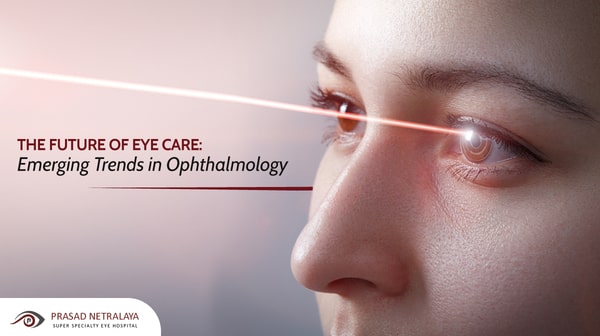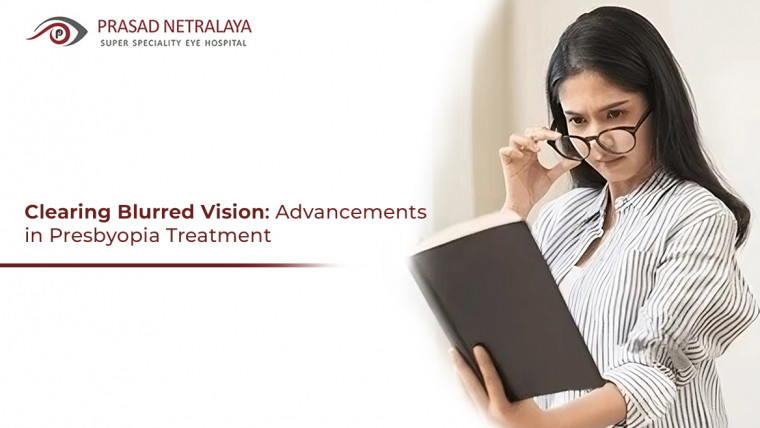In any industry, change is inevitable. In fact, it is the only constant. This goes for vision science and eye care as well. Ophthalmologists will see shifts in the way they practice, provide care to patients, and do business. And they will have to adapt to the medical, scientific and economic changes that arrive.
The need for ophthalmologists and optometrists is going to be greater than ever in the coming decade, and that determines the vibrant future of optometry. Certain trends are set to shape the future of ophthalmology. Technologies like Artificial Intelligence will have a significant impact. In this blog, we will put forth some of the future trends that will change the eye care landscape.
Table of Contents
The Rise of Artificial Intelligence
Emerging and future trends in Artificial intelligence (AI) show growth in its popularity for screening, diagnosing and helping treat eye conditions. Approved AI-based devices can be used for detecting conditions like diabetic retinopathy — by analyzing images of the eye taken with a retinal camera and using software to screen if the patient has any problems, and the need for treatment. AI can excel at image recognition, and its algorithms can learn the difference between normal images and abnormal images.
AI-based software could be used to recognize early signs of issues like macular degeneration. The software will be programmed for image assessment and producing results faster. The technology may be able to assist doctors early detection of macular degeneration and in its treatment. AI also could also help ophthalmologists to map and measure the progress of a person’s disease. Computer systems can rapidly process multiple eye scans and large sets of information.
Bionic Eye Implants
Researchers and scientists have been developing innovative ways to restore eyesight. Bionic eyes, or bionic eye implants, are one such effort — and one of the disruptive technologies we will get to see. What cochlear implants have become for auditory disabilities, bionic eye implants are for visual ones.
Bionic eyes work in the existing eye structures or in the brain. They consist of the cornea, pupil, lens, retina, iris, and optical nerve. The light that is either radiated or reflected from any object reaches the human eye and interacts with these components to form an image. The brain sees the image and processes it as an erect image of the same size as that of the object. Bionic eyes are designed to achieve functional vision goals, as opposed to physical, cosmetic ones. This is what makes them different from prosthetic eyes or artificial eye technology.
Synthetic Cornea Implants
For those who can’t see, artificial (synthetic) cornea implants can be the future. It will have an optical component attached to a biocompatible material resembling the human extracellular matrix. This material provides physical structure and biochemical signals and also fuses with nearby native tissues.
At present, patients with diseased or damaged corneas can get transplants. But with the shortage of corneas to go around, a synthetic option will surely be good news.
Increase in Use of Robotic Surgical Assistants
Robotics has revolutionized various surgical specialities. Robot-assisted surgery provides plenty of improvements, compared to unassisted procedures. The integration to the field of ophthalmology has been a great advancement, and it will see a surge in the future.
We may see a rise in robotic surgical assistants in procedures to improve operative precision, range of motion, dexterity in small spaces, and tremor filtration. These robots will also be able to manipulate multiple tools at once.
So take the long view, and know what to expect on the road ahead in ophthalmology and eye care. And if you are looking for a place that provides quality eye care, get your eyes checked or treated at Prasad Netralaya — Mangalore and Udupi’s leading Eye Care Hospital. Our experienced staff makes sure that you receive the quality Ophthalmological care that you deserve. Call us at +91 9513596565 or book an appointment if you wish to visit in person.
Dr. Vikram Jain, M.S. had his medical training (MBBS) from Kasturba Medical College, Mangalore, India. He did his master’s in Ophthalmic surgery from Kasturba Medical College, Manipal. He currently manages the Glaucoma department of Prasad Netralaya hospital.



